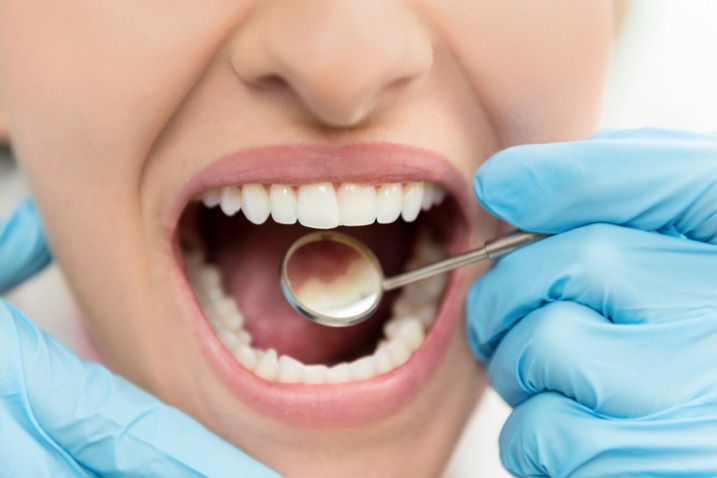
If you’re experiencing bad breath or other dental issues, your mask isn’t to blame.
To stop the spread of the coronavirus pandemic, most of us are following medical advice and wearing face masks in public to protect ourselves and others. Unfortunately, there’s a lot of misinformation about the efficacy and safety of masks out there. Anaheim Councilwoman Lucille Kring recently commented that some dentists have found that masks cause serious oral and dental issues like cavities, gum disease, and halitosis. Her claim, dubbed “mask mouth,” quickly made the rounds in numerous publications across the country.
But is there any truth to this claim? Can wearing a mask to protect yourself from COVID-19 actually leave you vulnerable to dental issues? Here’s what you need to know.
Why “Mask Mouth” Is A Myth
The overwhelming majority of dentists agree — there’s no scientific basis for “mask mouth.” Dentists, doctors, nurses, and other medical professionals have been wearing masks for extended periods of time even before the pandemic, and they have never had higher rates of dental issues. A mask protects the covered areas, nothing more.
That said, there are many pandemic-related factors that can lead to cavities or dental issues — but none of them involve face masks. Most people visit the dentist every six months for a check-up. But since COVID-19 hit, many people have skipped their appointments because of shelter-in-place orders, self-quarantine, or anxiety about returning to a place of business. As such, any dental issues that would’ve been caught by a dentist under normal circumstances now go unnoticed and untreated.
Similarly, some patients may be neglecting their dental hygiene during the pandemic. Between attending constant Zoom meetings, fighting cabin-fever, and watching an international crisis unfold, flossing regularly might be the last thing on your mind. Quarantine eating habits could be another reason why dentists are seeing more cavities during the pandemic. Stress-baking binges might be good for the soul, but all that sugar is bad for your teeth.
What’s Causing Your Dental Issues?
If you’ve been experiencing bad breath, dental cavities, or gingivitis, there are far more likely causes than “mask mouth.”
- Bad Breath/Dry Mouth — Dry mouth, and the subsequent bad breath, can be caused by many different factors. Dehydration is the most common cause, followed by intensive exercise, acid reflux, and certain prescription medications. Drink at least 64 ounces of water daily to stave off dehydration, chew sugar-free gum to freshen breath and create more saliva, or use a dry mouth rinse if the issue is severe.
- Cavities — After you eat or drink, bacteria turn those sugars into acid, which can break down the enamel of your teeth and form cavities. As such, cavities are caused by poor oral hygiene habits or poor eating habits.
- Gingivitis — Gingivitis is a mild form of gum disease that causes painful swelling and inflammation along the gumline. When left untreated, it can lead to a more serious gum disease called periodontitis and tooth loss. The most common causes of gingivitis are poor oral hygiene and plaque buildup.
You can prevent all of these dental issues by following oral hygiene best practices. Brush your teeth for two minutes twice daily, floss once a day, use a fluoride rinse, and don’t forget to brush your tongue.
Separate Fact from Fiction at Espire
As the pandemic continues, we recommend that all our patients listen to public health experts regarding masks. To access verified information about the coronavirus and learn how best to protect yourself, turn to the Centers for Disease Control and Prevention. If you have any questions about dental hygiene or how to take care of your teeth during a pandemic, contact the professionals at Espire Dental.


